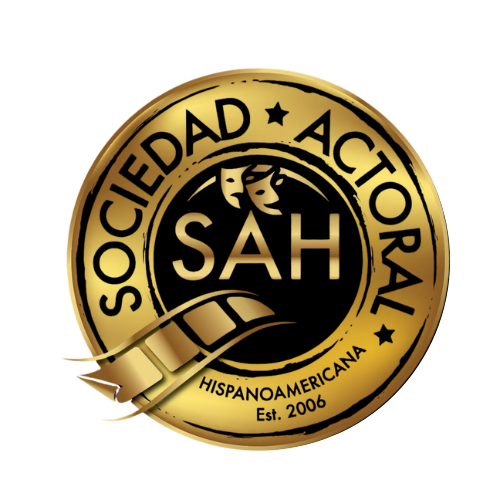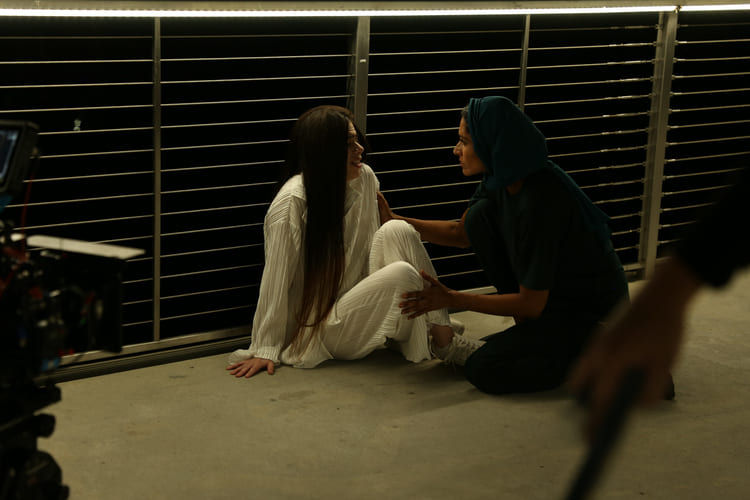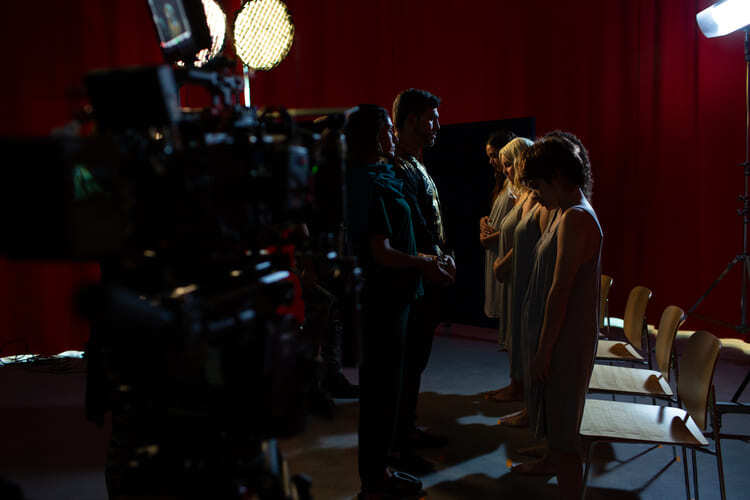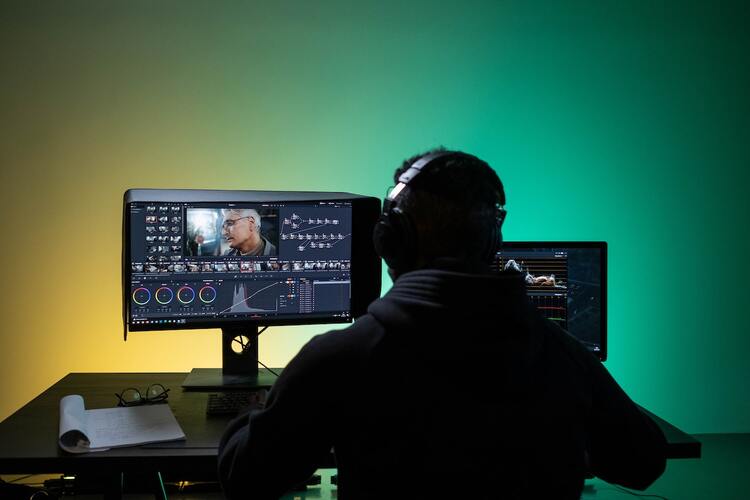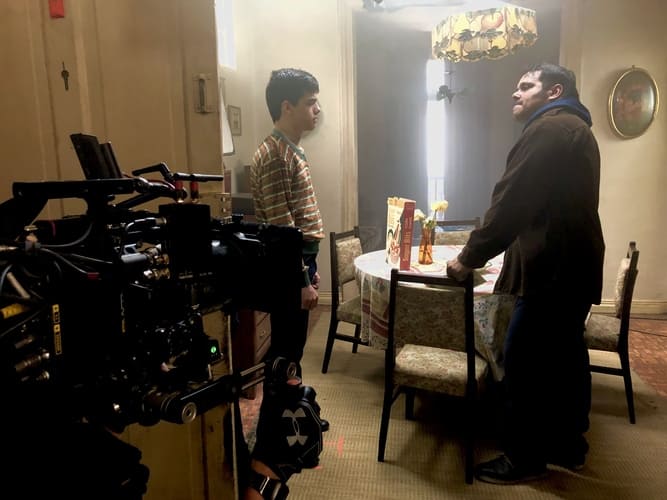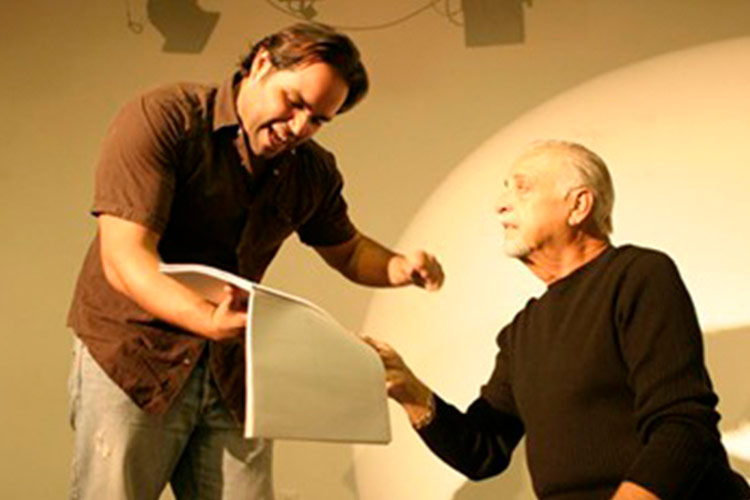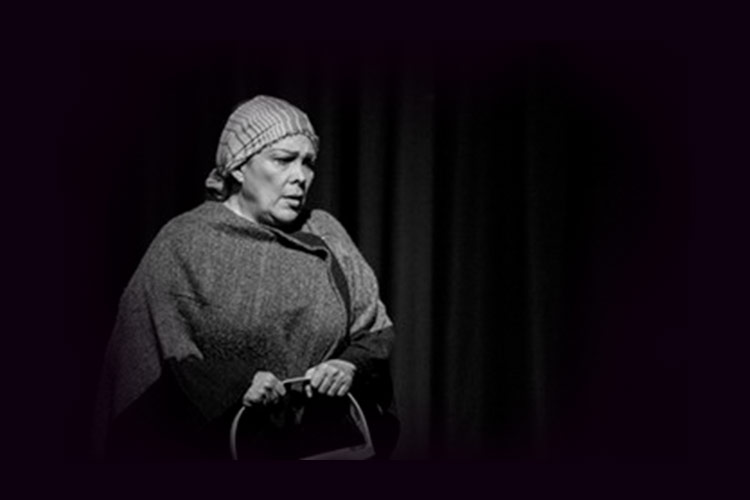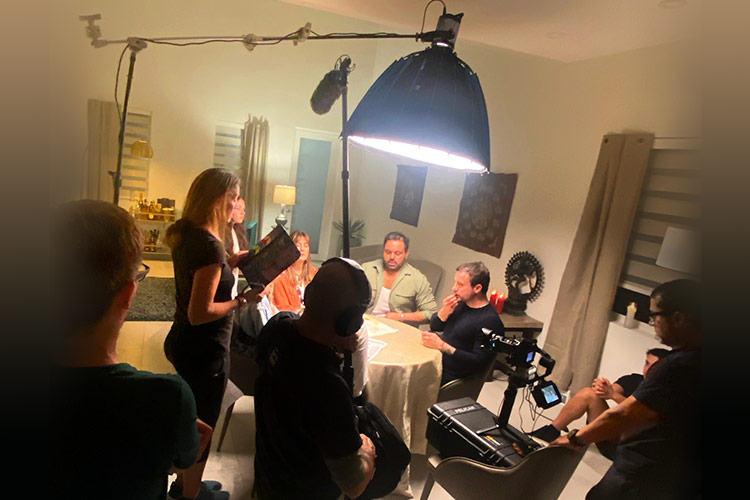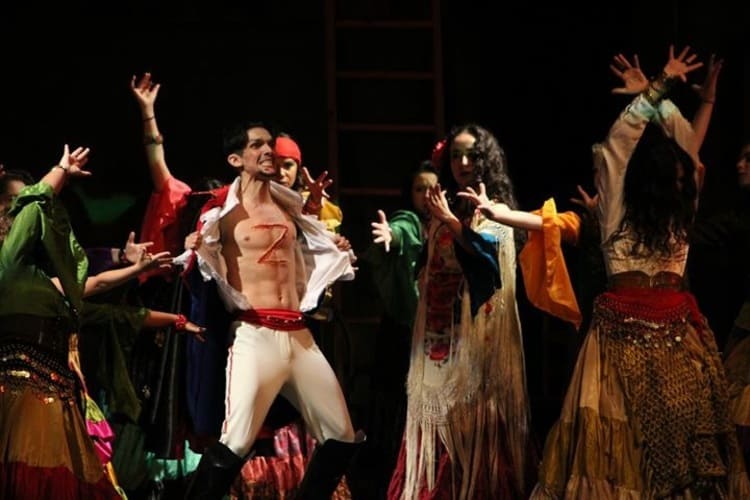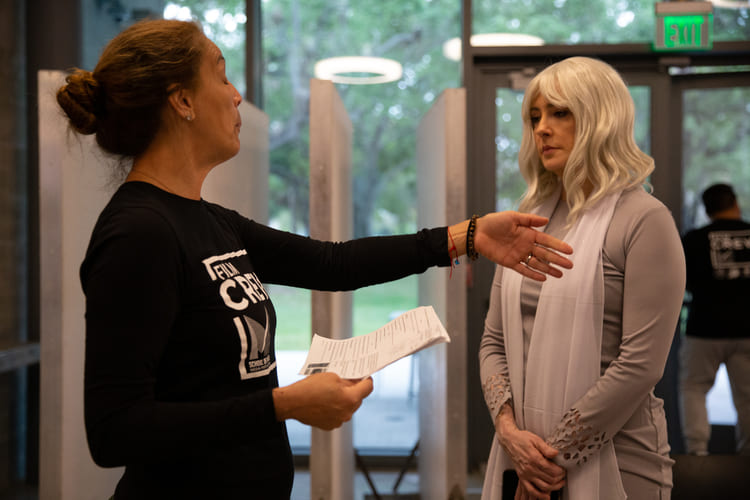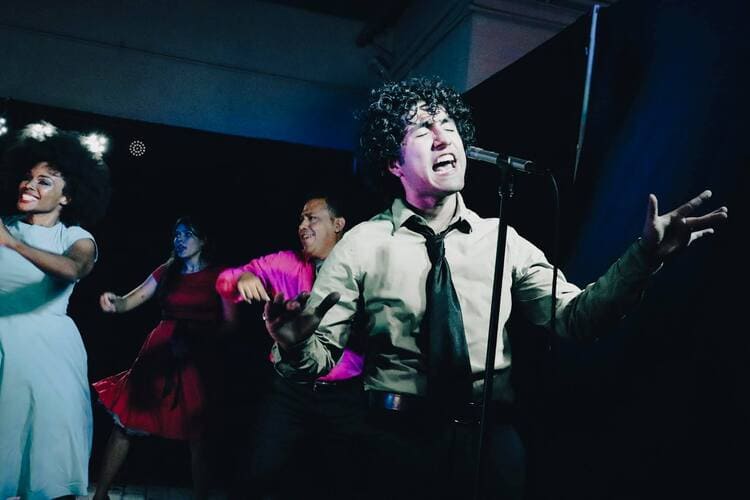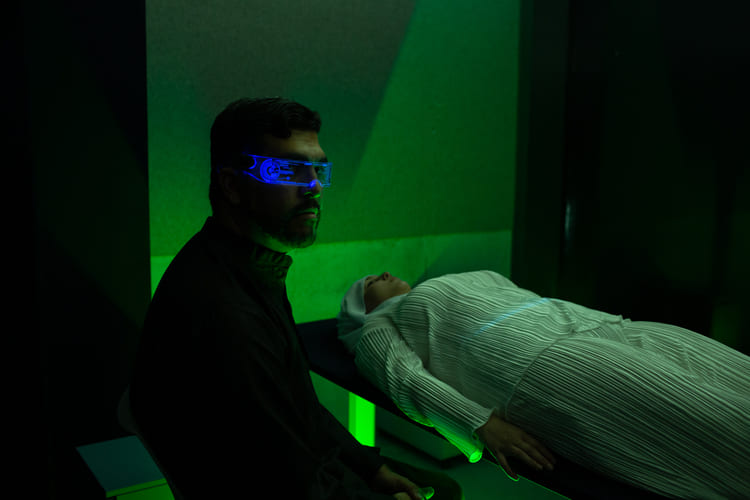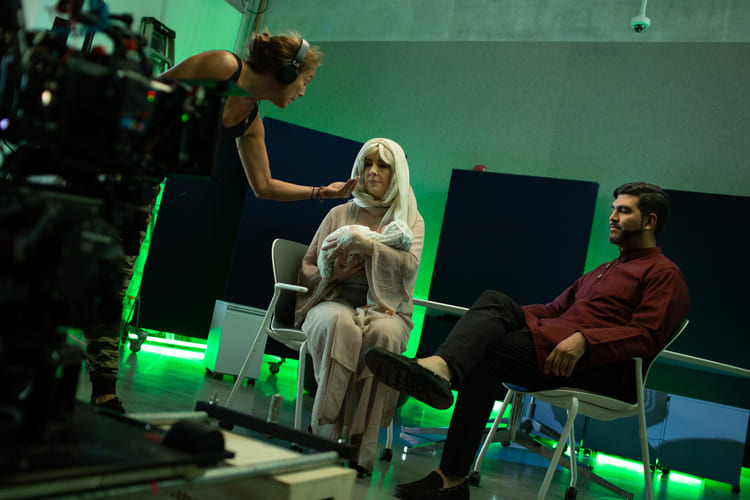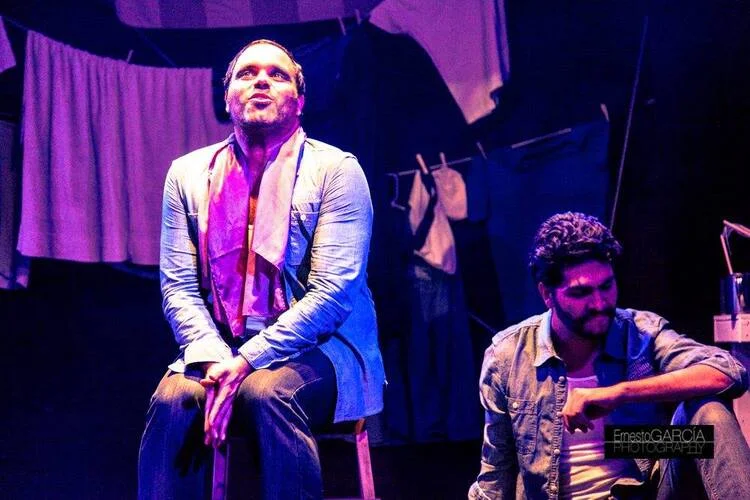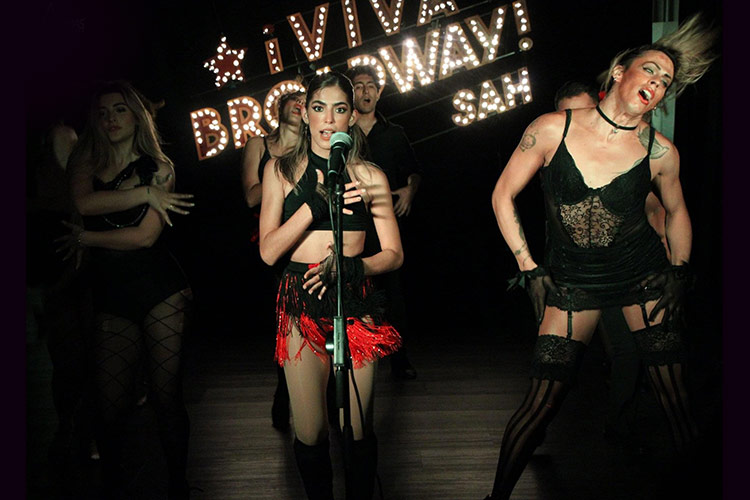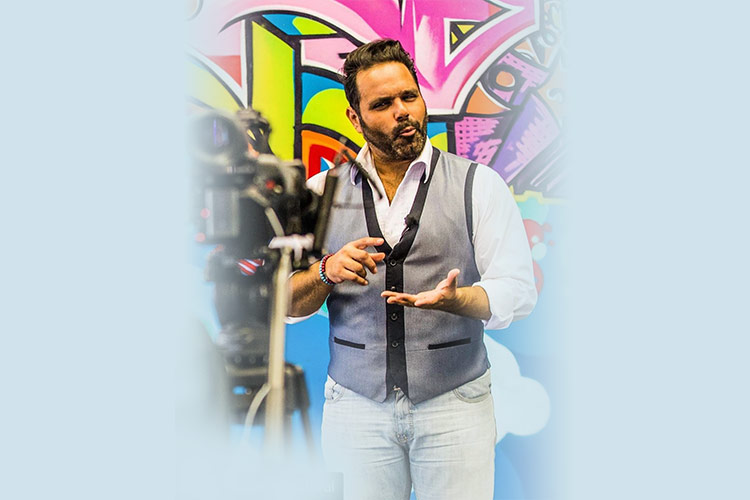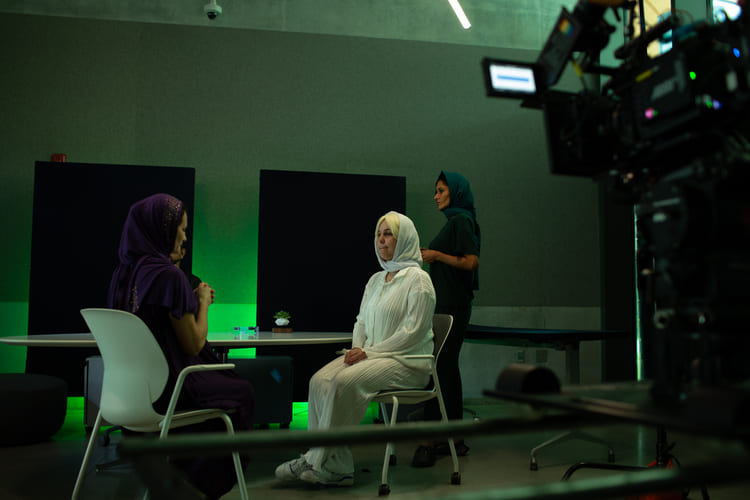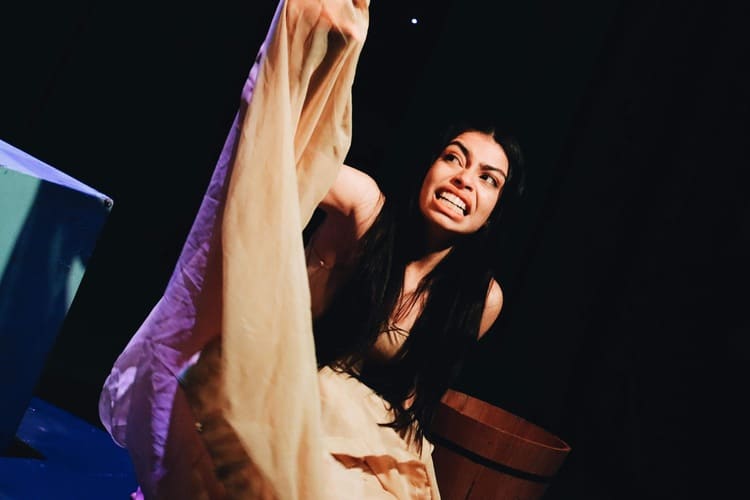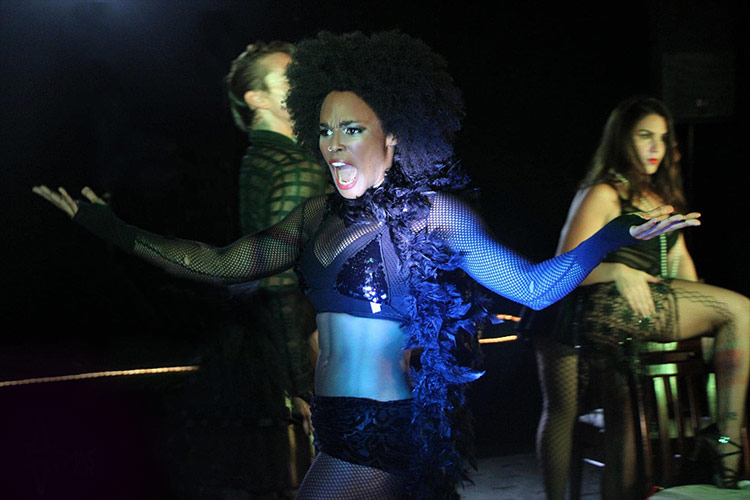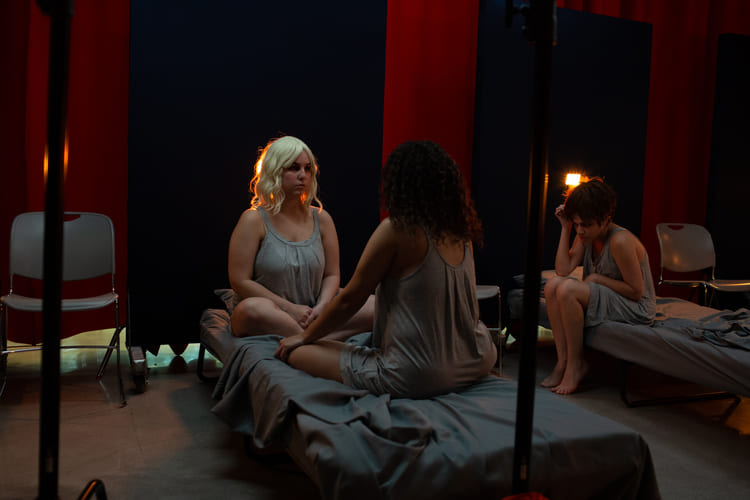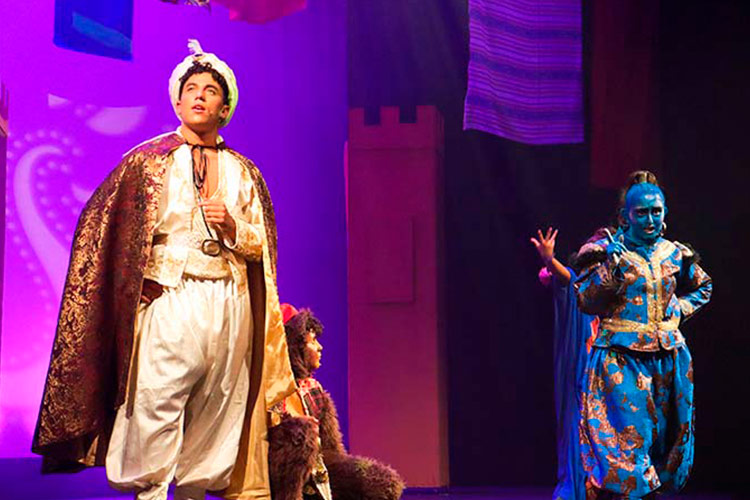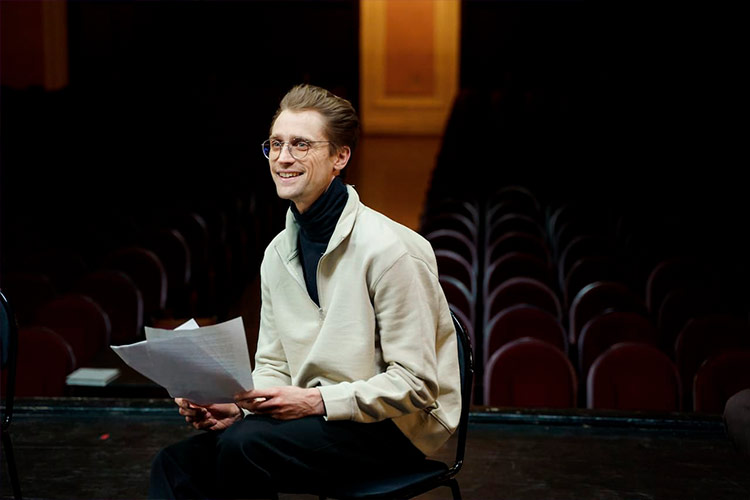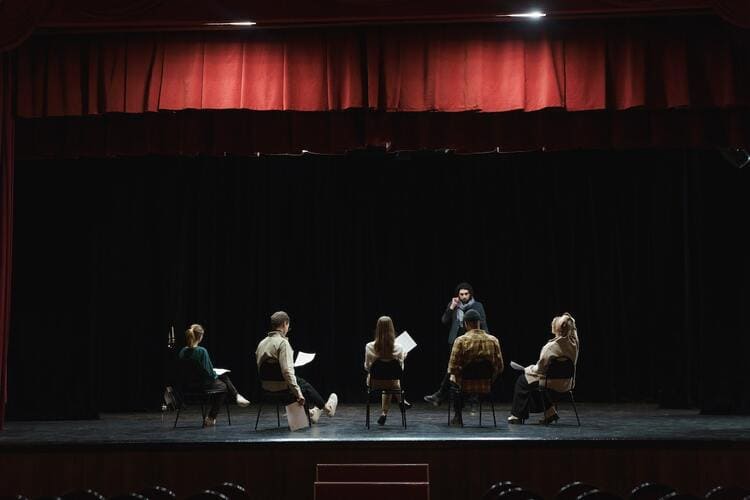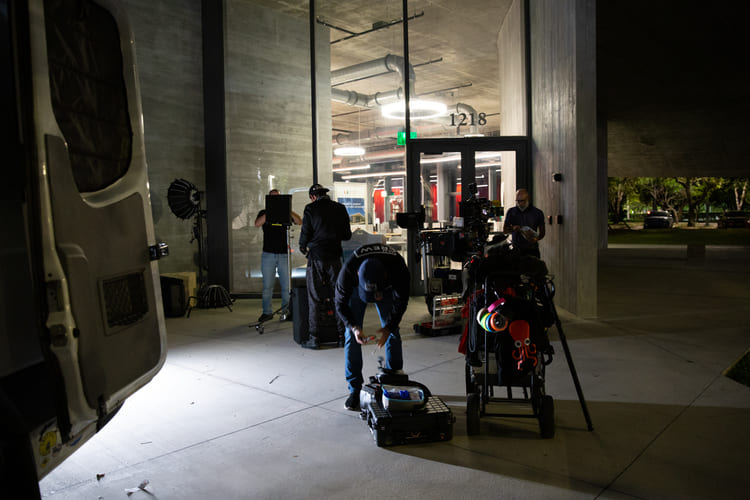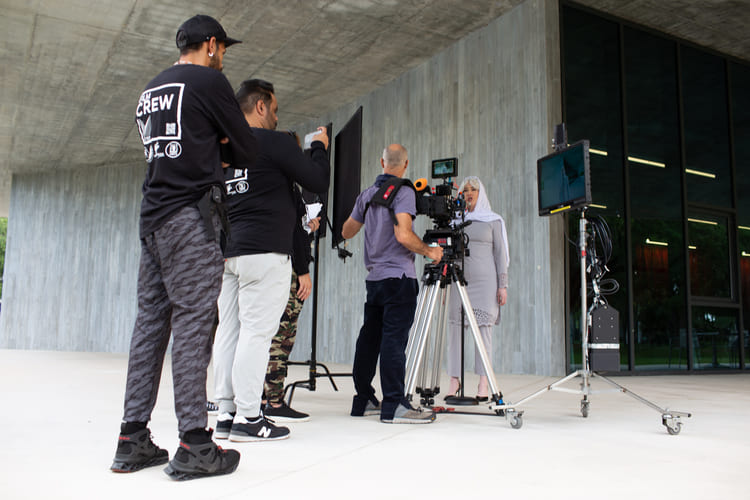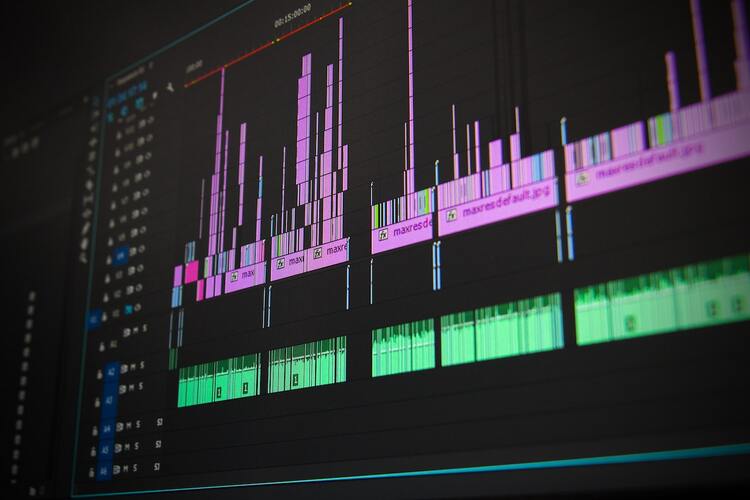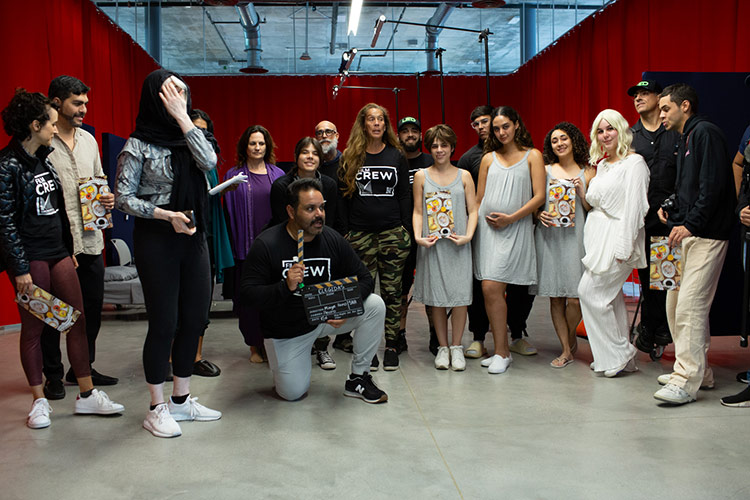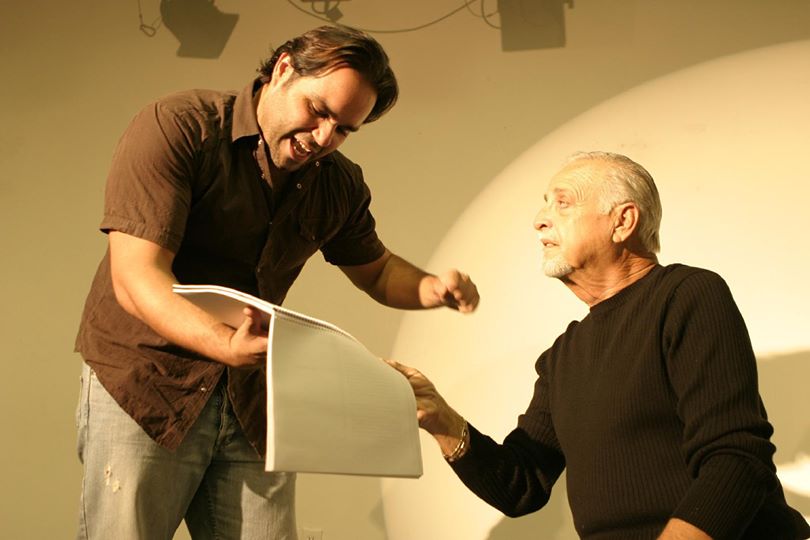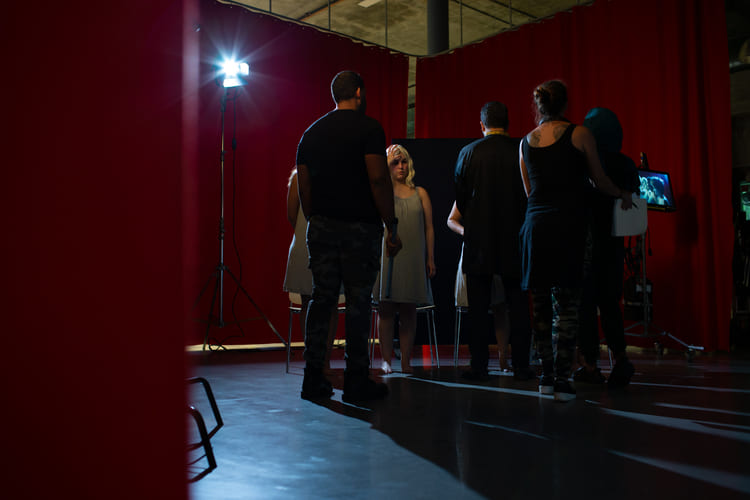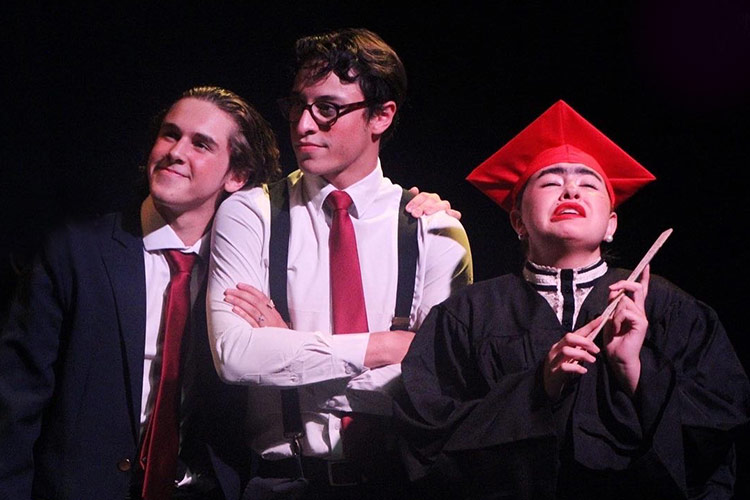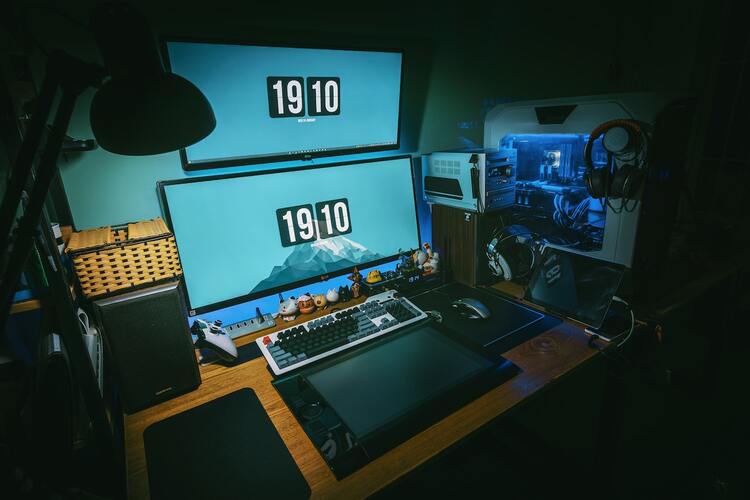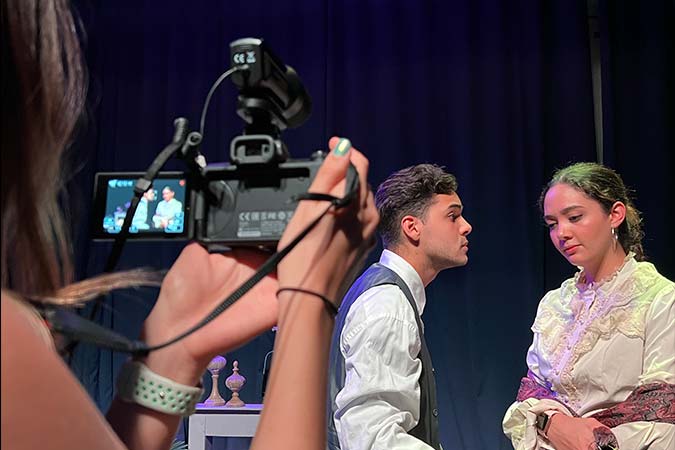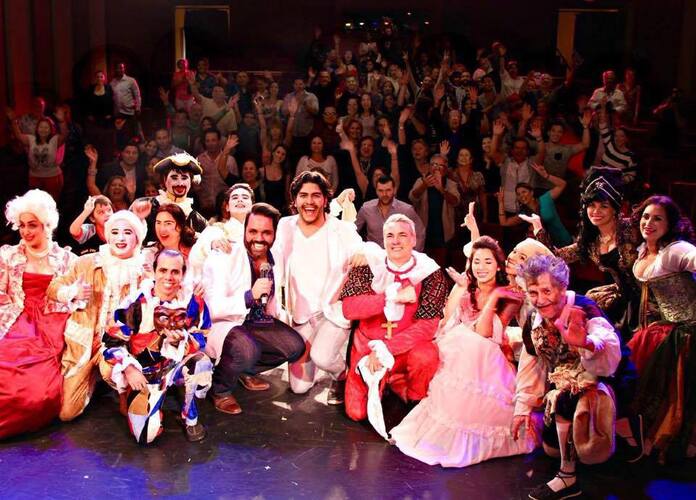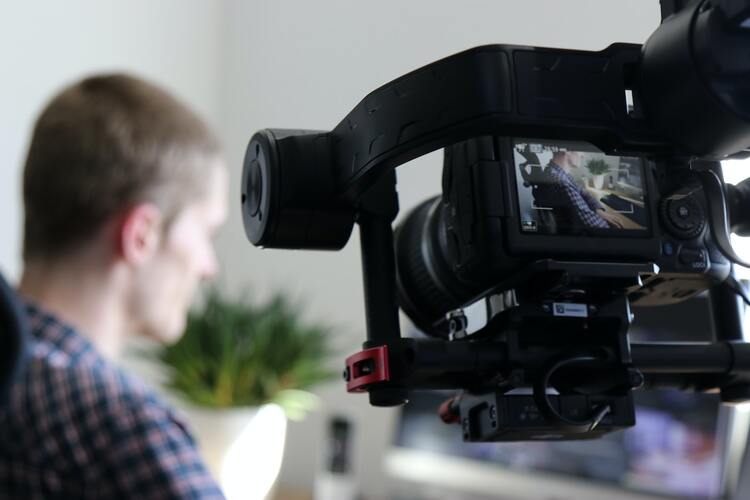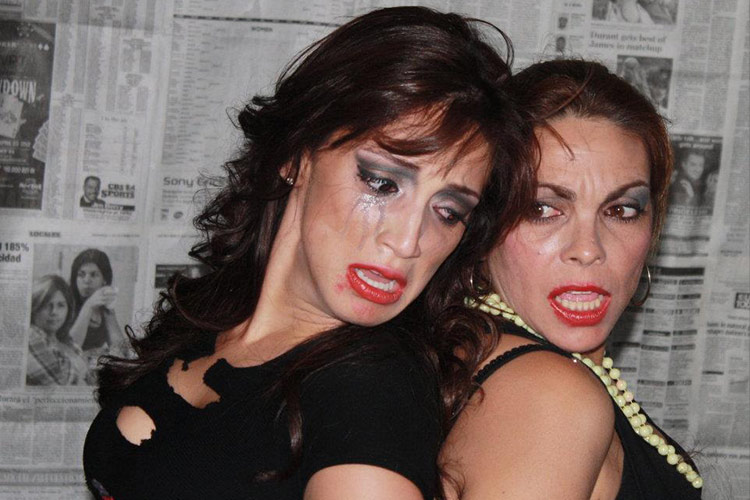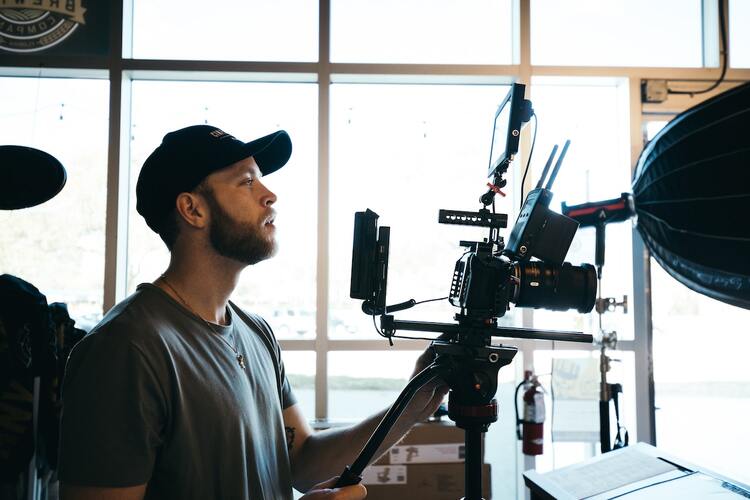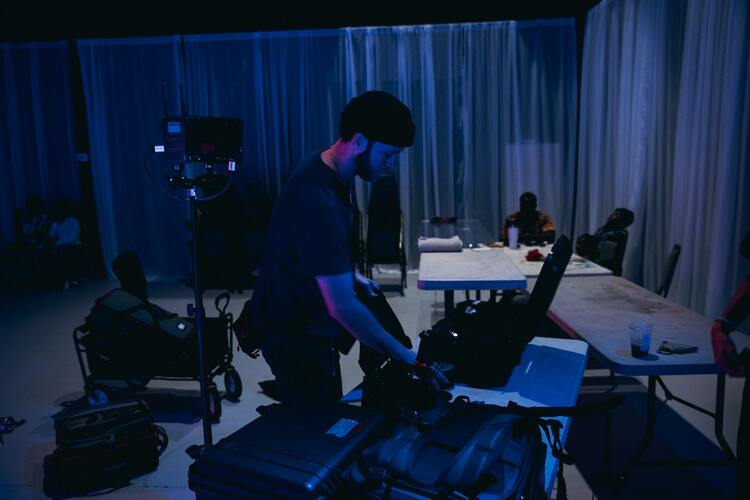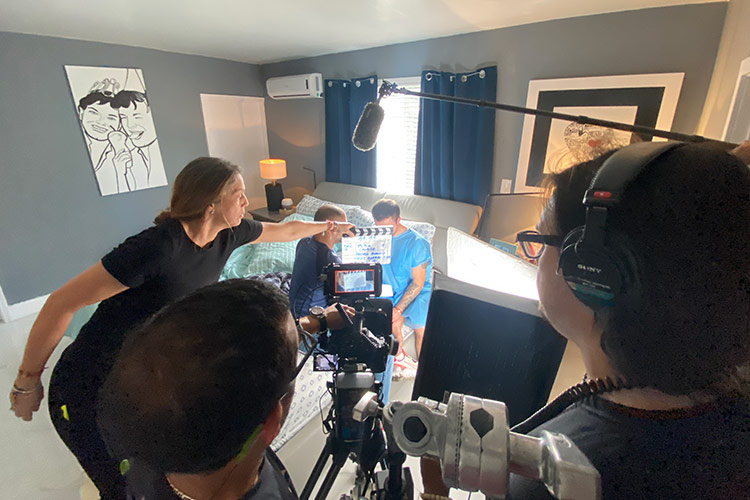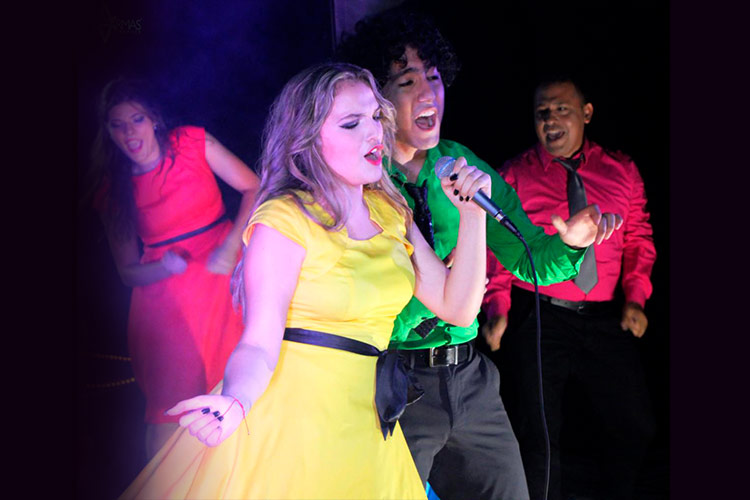ASSOCIATE PROGRAMS
SCHOOL OF THE ARTS AND MEDIA INSTITUTE OF MIAMI is an arts institution that offers associate degree programs in three different fields of study: Professional Acting, Film and Television Production, and Digital Cinematography. Students can earn an associate degree in any of these fields in a two-year program designed to provide them with a strong foundation in their specialty. Each program includes specialized courses in their area of study as well as a variety of general education courses to provide a comprehensive education. Upon completion of an associate degree in any of these programs, students can choose to enter the workforce or continue their studies at a four-year university.
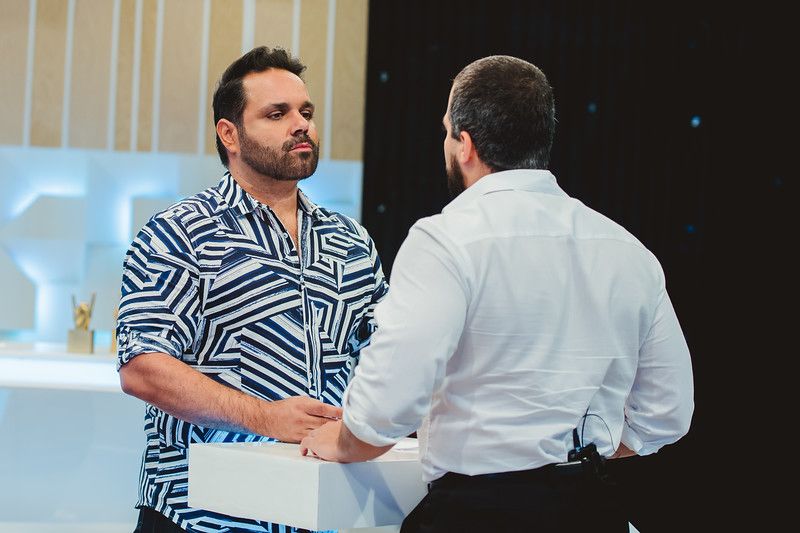
— Intensive workshop in Chicago
“Wonderful teachers and a great overall experience!” “I loved the workshop – it helped me so much.” “The instructors were very engaging.” “I’m speechless, an amazing experience.” “I can apply what I learned to the roles I’m currently playing.” “It was an honor to work with such kind people who know so much about theatre.”
GENERAL CLASSES
The SCHOOL OF THE ARTS AND MEDIA INSTITUTE OF MIAMI aims to provide its students with a comprehensive and diverse education that goes beyond specialization in their field of study. To this end, our institution has developed a block of general education courses that focus on the development of critical thinking and creative skills, providing students with a broader perspective of the world and preparing them for a solid professional future.
The general education courses at our institution cover a wide variety of disciplines, from mathematics and environmental social sciences to humanities. Each course is designed to provide students with fundamental knowledge in each subject, while also allowing them to develop important skills such as communication, critical thinking, problem-solving, and creativity. Moreover, these courses are designed to complement and enrich students’ education in their main field of study, allowing them to acquire unique skills and perspectives for their career.
This course concentrates on the development of imagination, observation, focus of attention, and the effective use of materials drawn from life. Students work on acting scenes, which include an approach to textual analysis, as well as practice in communication, personal involvements, and the accomplishment of stage tasks. Class work includes extensive individual coaching and ensemble work.
This course prepares students to study more advanced mathematics. Topics include the real number system, polynomials, inequities, and exponential, logarithmic and rational functions. It also covers conic sections, determinants, sequences and series and the binomial theorem. To qualify for this course, students must demonstrate competence in both algebra and geometry.
Students work on scenes of increasing length and difficulty to learn the steps of analysis and develop their stagecraft. Emphasis is placed on finding clear, compelling objectives, playing those objectives truthfully and learning how to stage scenes effectively. Great attention is paid to developing professionalism, maturity, and ensemble sprit in the class groups.
This course studies the origins and rise of cinema production from the perspective of a filmmaker. The course examines critical historical events that impacted the industry and the craft of filmmaking; the emergence of the studio system, the coming of sound, audience shifts, emergence of other media and the rise of digital technology. The study of theatre in America from the 18th Century to the present; the development of native playwrights, actors, and critics, and the dramaturgy of representative plays.
Planning and Programming is a practical theoretical course that belongs to the general training block that aims to train the apprentice in different techniques, methods and tools that facilitate management, breakdowns, creation of work plans, shooting orders and particularities of the phases pre-production and filming in film projects, television, or advertising.
The Environmental Sciences course belongs to the block of general education courses, it is of a practical theoretical nature and its purpose is to study the different scientific disciplines whose main objective is to seek and understand the relationships that human beings maintain with themselves and with nature. It implies a multidisciplinary area of study that covers different elements such as the study of environmental problems and the proposal of sustainable development models.
1. PROFESSIONAL ACTING
Classes
This course focuses on how the body and movement can be used as tools for interpretation and expression in acting and theatre. The main objective of the course is to provide students with a deep understanding of how the body and movement can be used to create characters and tell stories on stage. In this course, students will learn about the anatomy and biomechanics of the human body and how these concepts relate to movement in acting and theater. Movement techniques, such as dance, acrobatics, and mime, will also be discussed and how they can be used to enrich performances. Students will have the opportunity to practice and apply these techniques through exercises and group scenes. The course will also address how movement can be used to develop strong acting technique and to explore emotion and character psychology. Students will have the opportunity to experiment with different forms of movement and body expression to help them develop their creativity and intuition as actors.
Is and advanced scene study class that focuses on developing a process for performing non-realistic heightened acting texts. Students will encounter plays those present unique challenges for actors in terms of language, physicality, characterization, style, content, and text analysis. The class will structurally fuse the rationally separate disciplines of acting, voice, and movement into a comprehensive unit by approaching the text simultaneously from these three perspectives.
This course offers training in screenwriting techniques for film and television, includes practical exercises and individualized feedback from instructors with the purpose of strengthening and developing students’ writing skills, and a solid understanding of scriptwriting techniques. scripts and how to apply them to a real project in a collaborative learning environment with other developing writers.
The main objective of the course is to help students develop a clear, strong, and versatile voice that allows them to communicate effectively on stage and on the recording set. In this course, students will learn techniques to improve their respiratory control, diction, and vocal projection. In addition, they will explore different styles and accents to expand their skills and versatility as actors. Students will practice reading aloud, improvisation, and recitation exercises, and receive individualized feedback to help improve their skills. The course will also include classes on caring for the voice, preventing vocal injuries, and maintaining a strong, healthy voice.
The primary purpose of this course is to help students develop their ability to create more complex, deeper, and compelling performances. In this course, students will delve into specialized acting techniques, such as the Meisner technique, the Stanislavski technique, and the Chekhov technique. These techniques will focus on helping actors connect with their emotions and feelings and create authentic and compelling performances. In addition, students will practice a wide variety of acting exercises, including improvisation, solo and couple scenes, and monologues. Students also can work with text from plays and films, applying the techniques they have learned to create deeper and stronger performances. The course will also include a deeper exploration of different acting styles, including classical theatre, contemporary theatre, and musical theatre. Students will have the opportunity to work on individual and group projects to apply and develop their skills in a real performance environment. In addition, students will receive individualized feedback and constructive criticism to help them improve their skills and develop their ability to make critical performance decisions.
This course will focus on the unique challenges that television acting presents and will help students understand how to apply their acting skills in this medium. The course will include a detailed exploration of the different genres of television, including comedy, drama, soap operas, and reality television. Students will learn about the specific techniques required to act in each of these genres and will practice scenes and monologues to develop their skills in a real acting environment. In addition, students will learn camera technique, including how to perform on camera, how to move on a television set, and how to manage lighting and sound. Topics such as improv on television, teamwork, and collaboration with other actors, directors, and producers will also be explored. The course will also include script reading sessions, in which students will practice interpreting different characters and genres of television. Students will also can receive individualized feedback and constructive criticism to help improve their skills and prepare them for the real world of television acting.
The theater acting course aims to help actors improve and develop their skills on the theater stage. During the course, students will explore specific acting techniques for the theater, including voice techniques, diction, body language, and character creation. The course will include detailed exploration of the different theater genres, including comedy, drama, tragedy, and puppetry, and students will learn the specific skills and techniques required to perform in each. Students will practice their skills through acting out scenes and monologues and receive individualized feedback to improve their performance. The course will also focus on theater technique, including use of the stage, stage movement, collaboration with other actors, and improvisation. In addition, students will learn about script acting through script reading sessions and will have the opportunity to receive constructive feedback to help improve their skills.
This course focuses on the development of advanced skills in interpretation and corporal expression. Students will learn advanced acting techniques and how to use the body and movement to create characters and convey emotions and feelings effectively. During the course, students will explore acting techniques such as the Stanislavski technique, the Meisner technique, and the avant-garde technique, and learn to apply them to their own performance. In addition, students will have the opportunity to practice advanced skills in acting scenes and monologues and will learn to use the body and movement to create complex and detailed characters. The course will also focus on the use of the body and movement in different genres of film and theater, including drama, comedy, and avant-garde. Students will learn techniques for developing characters and conveying emotions and feelings through the body and movement and will have the opportunity to practice these skills.
The Casting course aims to teach students the key aspects of the casting process in the world of acting, film and television. Students will learn how the casting process works, how to prepare for an audition, how to interact with directors and producers, and how to perform effectively in a casting session. During the course, students will explore acting techniques and how to apply them in a casting environment, and will have the opportunity to practice in simulated casting situations. Students will also learn about the different types of roles available in the world of acting, and how to identify the roles that best match their strengths and abilities. Additionally, the course will include discussions of the entertainment industry and how the job market works for actors. Students will learn about casting agents, talent managers, and how to build a career in the world of acting.
This course is designed to give students the opportunity to develop and improve their television acting skills. In this course, students will have the opportunity to work on realistic television situations, such as dialogue scenes, monologues, commercials, and talk shows, and receive valuable feedback on their performance. The course will focus on acting technique for television, including character preparation, creating a natural and effective television presence, and camera technique. Students will learn about camera direction, editing, and the use of sound and lights. In addition, the course will include discussions of the television industry, including the nature of television jobs, how to get auditions, and how to manage a television career. Students will also can work with experienced mentors in the television industry and learn from their experiences and insights.
The Theater Practice Lab course is designed to provide students with the opportunity to develop and improve their acting skills for the theater. In this course, students will have the opportunity to work on realistic theater situations, such as dialogue scenes, monologues, and complete plays, and will receive valuable feedback on their performance. The course will focus on acting technique for the theater, including preparing characters, using the body and voice on stage, and creating a strong and effective theatrical presence. Students will learn about directing theatre, creating appropriate scenery and costumes. In addition, the course will include discussions of the theater industry, including the nature of theater jobs, how to get auditions, and how to manage a career in theater. Students will also can work with experienced mentors in the theater industry and learn from their experiences and knowledge.
The Film Acting course is designed to give students the opportunity to develop their acting skills for the big screen. This course aims to train students in different techniques and improve their skills and prepare them for a career in film. The main objective of the course is to develop in students the necessary skills to perform effectively in a cinema environment. This includes character preparation, script interpretation, and on-camera acting technique. Students will learn about different types of acting for film, including dramatic acting, comedy, and action, and will have the opportunity to practice these techniques in on-camera acting scenes and exercises. In addition, the course will include discussions of the film industry, including the nature of film jobs, how to get auditions, and how to manage a career in film. Students will also can work with experienced directors and professionals in the film industry and learn from their experiences and insights.
This elective allows students to choose a course from a list of available options, these options are not mandatory requirements for the major program but provide the opportunity to delve into an area of interest or gain additional skills and knowledge. in areas related to their programs and personalize the learning experience, thus expanding your knowledge and preparing you for professional success.
The Final Film Project Laboratory course is a unique opportunity for professional acting students to put into practice all the knowledge and skills acquired throughout their training. In this course, students will work alongside teams from other related programs to create a complete film, from script development through production and post-production. The main objective of the course is to give students the experience of working in a real film production environment and putting their acting skills into practice. Students will have the opportunity to work as a team and collaborate with other production departments, such as art direction, sound and editing among others. During the course, students will receive feedback and guidance from a team of experienced professional mentors in the film industry, including directors, producers, and actors. These professionals will help students improve their skills and develop their artistic vision. At the end of the course, students will present their final film project in a public showing and will have the opportunity to receive feedback and comments. This course is a valuable experience for any acting student wishing to prepare for a career in film.
2. FILM AND TELEVISION PRODUCTION
Classes
This course teaches students how to tell stories through images, sound, and movement. The course addresses how to create an effective narrative and capture audiences’ attention in different formats, including film, television, and advertising. Topics to cover include: The structure of the narrative, the construction of characters and character arcs, the direction of actors and screen acting, the planning and execution of scenes, the creation of atmosphere and tension. In addition to storytelling theory and techniques, students can practice their storytelling and editing techniques by working on individual or group projects. By the end of the course, students will have a solid understanding of how to tell stories through audiovisual media and how to apply these techniques in their future work.
This course is a training program that teaches how to select, hire, and promote the right talent for an entertainment project. The importance of having a good production mix of actors, singers, comedians, or other artists is discussed to ensure that one is a success in terms of sales and popularity. The course may include talent search and evaluation techniques, as well as the planning and execution of marketing strategies for the promotion of a project or production.
This course aims to train students in issues of legal rights and obligations related to film production. The use of music, images, trademarks and other materials protected by copyright is addressed, as well as obtaining the necessary permits and authorizations to film in public and private places. Topics such as contracts with actors, directors, and other professionals, as well as labor and insurance responsibilities, are also covered. This course is essential for anyone involved in film and television production as it can help you avoid costly legal problems and wasted time.
This cou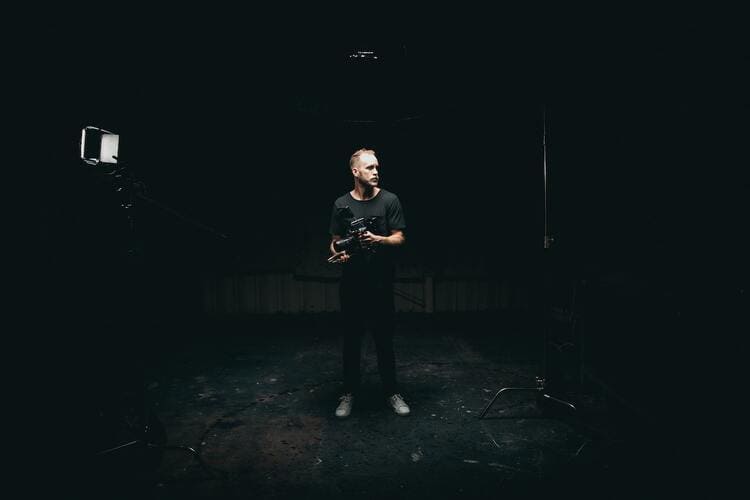 rse aims to train apprentices in essential techniques and skills to direct a theater or film production. The planning and execution of the director’s artistic vision is addressed, including the choice of locations, lighting design, costume selection, and other aesthetic aspects. Additionally, it teaches actor directing, including techniques for guiding and motivating a cast to reach their full potential. The course also includes lessons on dramaturgy, narrative structure, and character development.
rse aims to train apprentices in essential techniques and skills to direct a theater or film production. The planning and execution of the director’s artistic vision is addressed, including the choice of locations, lighting design, costume selection, and other aesthetic aspects. Additionally, it teaches actor directing, including techniques for guiding and motivating a cast to reach their full potential. The course also includes lessons on dramaturgy, narrative structure, and character development.
This course intends to train the student in the search and selection of suitable places for a cinematographic or theatrical production. Topics such as the planning and logistics of finding and reserving suitable spaces are addressed, including the evaluation of factors such as accessibility, cost, and security. Techniques for obtaining permits and authorizations for filming in public or private locations, and for working with location owners and other interested parties, are also discussed.
The cinematography course aims to train in techniques and skills to capture visual and sound images in a film production. The use of cameras, lighting, sound, and other technical equipment that allow creating a desired visual and acoustic aesthetic is addressed. In the same way, the course covers the study of techniques to compose shots and shoot sequences, as well as to control light and sound on a film set. Also included are lessons on editing and post-production, including enhancing and managing images and sound to create the desired result.
This course provides an overview of the basic concepts and techniques of video editing in film production. The use of video editing software, such as Adobe Premiere or Final Cut Pro, is taught, and the basics of editing are discussed, such as image sequencing and the use of transitions and effects to create a narrative flow. The importance of music and sound effects in video editing is also discussed.
This elective allows students to choose a course from a list of available options, these options are not mandatory requirements for the major program but provide the opportunity to delve into an area of interest or gain additional skills and knowledge. in areas related to their programs and personalize the learning experience, thus expanding your knowledge and preparing you for professional success.
This course aims to train the apprentice in different planning and coordination techniques for the practical and operational aspects of a cinematographic or theatrical production. The management of the actors is addressed, including the call and coordination of rehearsals and recordings. Issues related to the organization and administration of resources are also addressed, such as food, transportation and lodging for the actors and the team. In addition, lessons are included on planning and executing a budget and on making real-time decisions to solve problems and ensure the success of a production.
This course aims to train the apprentice in the most relevant aspects of cinematographic or theatrical production, ranging from conception to final delivery. It teaches about planning and coordinating the creative, technical, and logistical aspects of a production. Techniques for developing an idea and creating a script are discussed, as well as for hiring and directing a crew, including actors, filmmakers, and sound and light technicians. Also included are lessons on managing a budget, planning a production schedule, and solving problems on set.
This course offers training in screenwriting techniques for film and television, includes practical exercises and individualized feedback from instructors with the purpose of strengthening and developing students’ writing skills, and a solid understanding of scriptwriting techniques. scripts and how to apply them to a real project in a collaborative learning environment with other developing writers.
This course aims to train the apprentice in the most relevant aspects of cinematographic or theatrical production, ranging from conception to final delivery. It teaches about planning and coordinating the creative, technical and logistical aspects of a production. Techniques for developing an idea and creating a script are discussed, as well as for hiring and directing a crew, including actors, filmmakers, and sound and light technicians. Also included are lessons on managing a budget, planning a production schedule, and solving problems on set.
This course corresponds to the second elective, like the previous one, it allows the student to choose a course from a list of options. These courses are not mandatory but allow the personalization of each student’s training and explore their interests, offering the opportunity to expand knowledge and skills in specific areas. It makes it possible to focus learning on complementary areas to the main field of study, and to diversify training, in addition to helping to improve skills, such as communication and specific techniques in related areas.
The objective of this course is for students to The objective of this course is for students to put into practice the knowledge acquired throughout their study program to develop a film project. In this course, students apply the skills and knowledge acquired in their previous courses to develop a product, it can also include the acquisition of new knowledge and skills by working in a team and putting their skills and knowledge into practice in a real situation.
3. DIGITAL CINEMATOGRAPHY
Classes
This course provides an overview of the basic concepts and techniques of video editing in film production. The use of video editing software, such as Adobe Premiere or Final Cut Pro, is taught, and the basics of editing are discussed, such as image sequencing and the use of transitions and effects to create a narrative flow. The importance of music and sound effects in video editing is also discussed.
This course offers training in screenwriting techniques for film and television, includes practical exercises and individualized feedback from instructors with the purpose of strengthening and developing students’ writing skills, and a solid understanding of scriptwriting techniques. scripts and how to apply them to a real project in a collaborative learning environment with other developing writers.
This course is of a theoretical and practical nature, it covers the basic concepts of film production, it covers the entire production process from planning, financing, logistics and post-production. It includes the use of digital tools and technologies and emerging technologies.
The cinematography course aims to train in techniques and skills to capture visual and sound images in a film production. The use of cameras, lighting, sound, and other technical equipment that allow creating a desired visual and acoustic aesthetic is addressed. In the same way, the course covers the study of techniques to compose shots and shoot sequences, as well as to control light and sound on a film set. Also included are lessons on editing and post-production, including enhancing and managing images and sound to create the desired result.
This course provides comprehensive training in location selection and management for film and television productions, including assessing production needs, negotiating with location owners, planning logistics, and set and location design and planning. lighting and camera.
This course aims to train the learner on the different types of cameras, lighting equipment (spotlights and reflectors), how color affects lighting, how to select and use different types of color filters, studio lights and their characteristics, as well as the filming techniques and the basic laws of lighting, the use of natural and artificial light, and the control of light on the film set for different types of scenes and situations, such as exteriors, interiors, and night.
The drama therapy course focuses on the use of dramatization and acting as a therapeutic technique. It teaches how to use role play to help people explore and process their emotions, relationships, and internal conflicts. In addition, the different techniques and approaches used in drama therapy are discussed, such as free drama, structured drama, and therapeutic theatre. This course aims to sensitize and channel emotions into artistic expressions.
This elective allows students to choose a course from a list of available options, these options are not mandatory requirements for the major program but provide the opportunity to delve into an area of interest or gain additional skills and knowledge. in areas related to their programs and personalize the learning experience, thus expanding your knowledge and preparing you for professional success.
The cinematography course aims to train in techniques and skills to capture visual and sound images in a film production. The use of cameras, lighting, sound, and other technical equipment that allow creating a desired visual and acoustic aesthetic is addressed. In the same way, the course covers the study of techniques to compose shots and shoot sequences, as well as to control light and sound on a film set. Also included are lessons on editing and post-production, including enhancing and managing images and sound to create the desired result.
This course is of a theoretical and practical nature, it covers the basic concepts of film production, it covers the entire production process from planning, financing, logistics and post-production. It includes the use of digital tools and technologies and emerging technologies.
This course aims to train the student in the use of new technologies applied to the film industry, television, and other transmission media, strengthening film production processes, including applications for the treatment of images, videos, effects, sound and music as well as the use of new management and dissemination platforms.
The cinematography course aims to train in techniques and skills to capture visual and sound images in a film production. The use of cameras, lighting, sound, and other technical equipment that allow creating a desired visual and acoustic aesthetic is addressed. In the same way, the course covers the study of techniques to compose shots and shoot sequences, as well as to control light and sound on a film set. Also included are lessons on editing and post-production, including enhancing and managing images and sound to create the desired result.
This course corresponds to the second elective, like the previous one, it allows the student to choose a course from a list of options. These courses are not mandatory but allow the personalization of each student’s training and explore their interests, offering the opportunity to expand knowledge and skills in specific areas. It makes it possible to focus learning on complementary areas to the main field of study, and to diversify training, in addition to helping to improve skills, such as communication and specific techniques in related areas.
The Introductory Film and Video course provides an overview of the art and technique of film and video production. The historical and aesthetic aspects of cinema are discussed and the structure and technique of film narrative is taught. Also included are lessons on production, including planning, directing, cinematography, sound, and post-production
